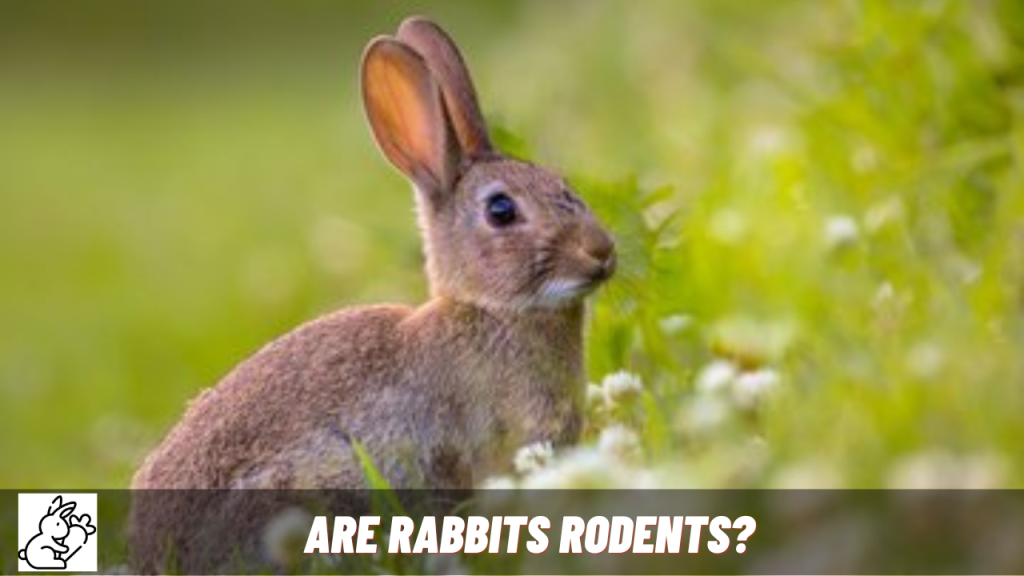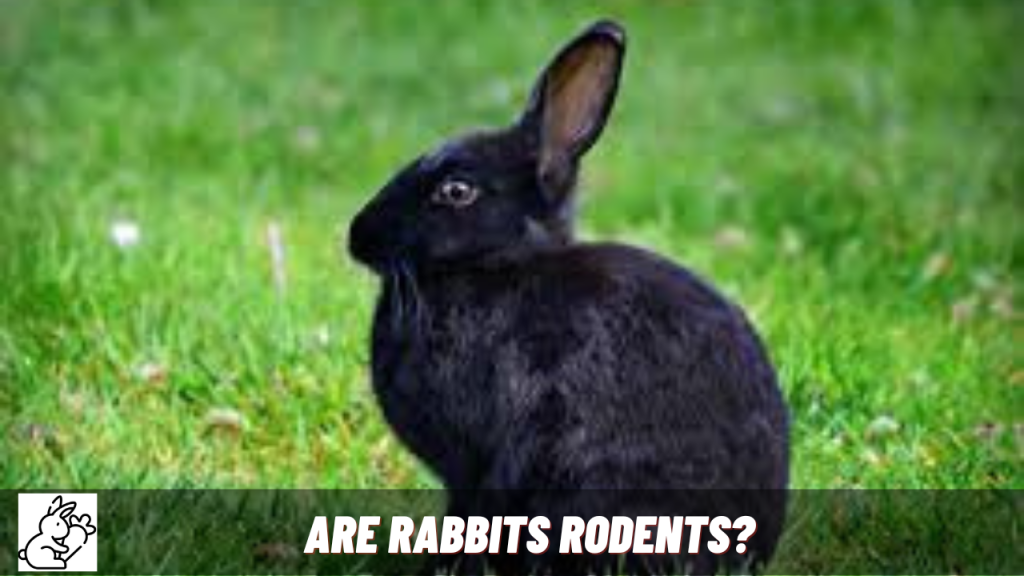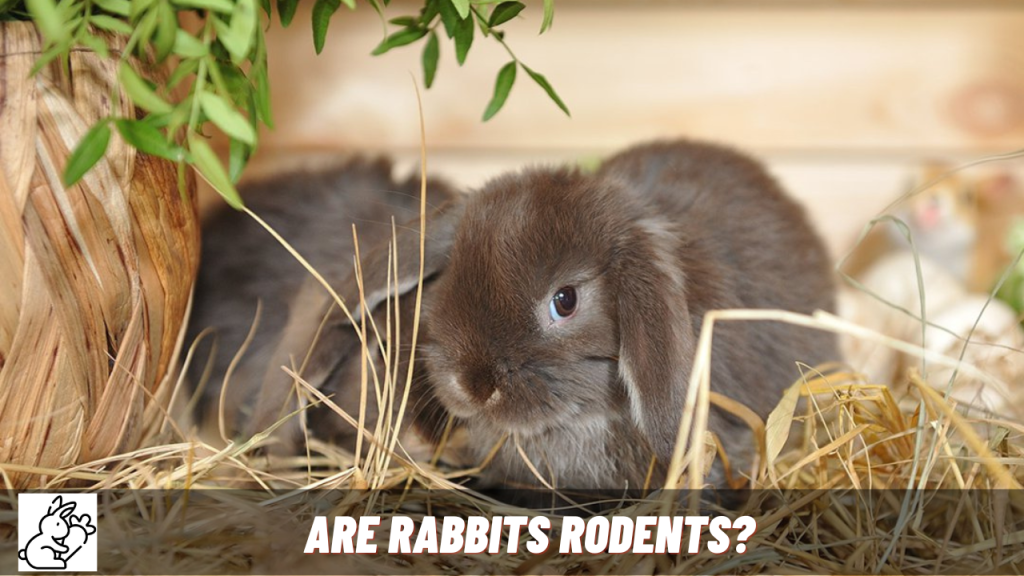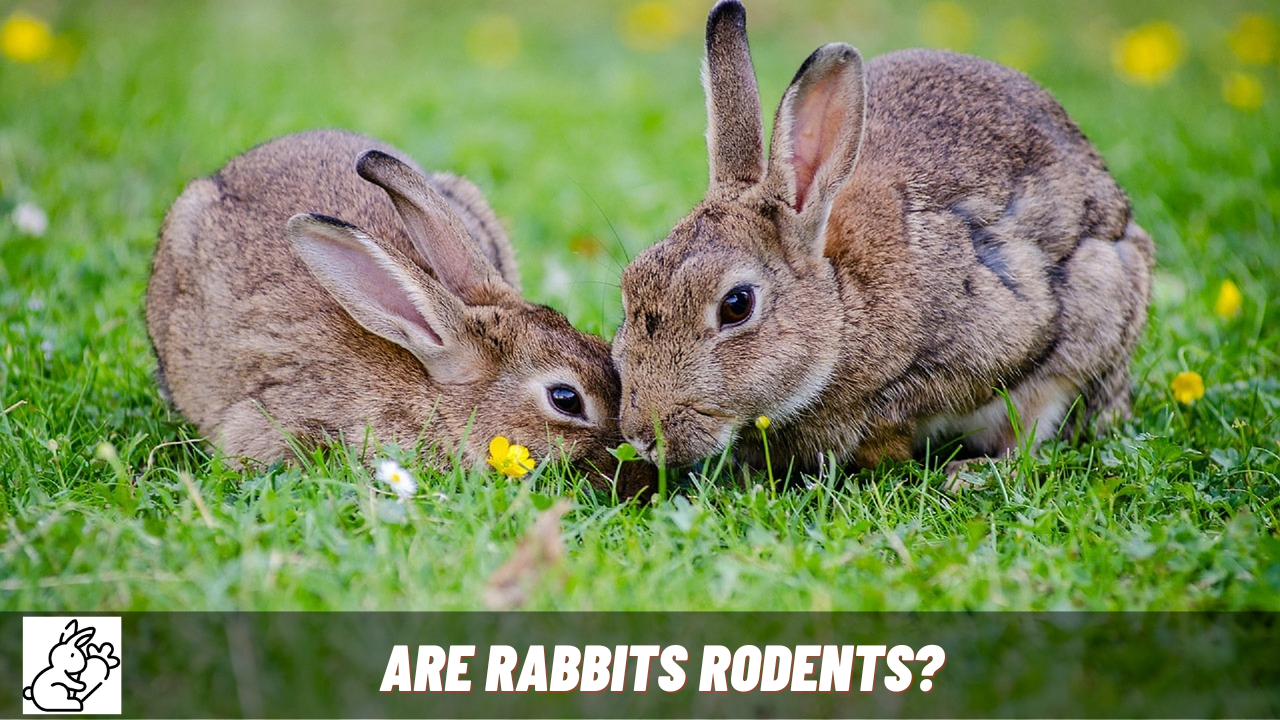Are rabbits rodents? This is a question that many people ask, and the answer may surprise you. While rabbits may seem similar to rodents, they belong to their distinct order, Lagomorpha.
Despite their small size and propensity for gnawing, rabbits have unique characteristics that set them apart from rodents. Their dental anatomy differs for one, as rabbits have two pairs of upper incisors compared to the single pair found in rodents.
Moreover, their digestive system is more specialized, allowing them to process their herbivorous diet efficiently. So, no, rabbits are not rodents. Next time someone asks you this question, you can confidently debunk this common animal myth. Now, let’s explore more fascinating facts about these fluffy creatures and learn why they are not classified as rodents.

Are Rabbits A Rodent or mammals?
Certainly, the question of whether rabbits are rodents or mammals sparks curiosity. Interestingly, rabbits fall under the category of mammals. However, their classification goes deeper than that broad category. Unlike common belief, they are not members of the rodent family.
Instead, they belong to the Lagomorpha order, a distinction that separates them from rodents. This clarification is vital for understanding their unique traits and needs. As a group, mammals share certain characteristics, such as warm-bloodedness, fur or hair, and the ability to nurse their young.
Rabbits fit snugly into this category with their furry coats and nurturing behavior. Yet, their specific anatomical and dietary features highlight the importance of recognizing them as lagomorphs. This accurate classification aids in providing the right care and understanding their role in nature. Thus, knowing that rabbits are mammals, but not rodents, enriches our appreciation and knowledge of these fascinating creatures.
Why Are Rabbits Not Rodents?
Rabbit anatomy reveals more than meets the eye. Beneath their soft, fluffy coats lies a complex structure. Specifically, their skeletal system is designed for agility and speed. Furthermore, their powerful hind legs allow for impressive leaps. Importantly, rabbits possess a unique dental setup.
As mentioned, they have an additional set of upper incisors, unlike their rodent counterparts. These teeth are crucial for their herbivorous diet. Additionally, their large ears are for more than just show. They play a significant role in temperature regulation.
Plus, their eyes are positioned for wide vision, aiding in predator detection. This intricate anatomy highlights their adaptation to the environment. Indeed, understanding these aspects provides insight into their survival strategies. Such knowledge also emphasizes their distinction from rodents. Thus, rabbit anatomy is a fascinating study in form and function.
The Digestive System: A Closer Look at How Rabbits Process Food
Rabbits boast a highly efficient digestive system uniquely tailored to their herbivorous lifestyle. Unlike many animals, they utilize a process called hindgut fermentation. This allows them to extract maximum nutrition from fibrous plants. Consequently, rabbits consume a variety of greens, hay, and vegetables.
Their cecum, a large part of the gut, ferments food, breaking it into vital nutrients. In addition, rabbits practice coprophagy, consuming certain fecal pellets directly from the anus. This might sound odd, but it’s crucial. It helps them absorb nutrients that were not digested the first time.
This process ensures they get the most out of their diet. Also, their unique system requires a constant supply of fibrous material. Thus, understanding their digestive needs is key to their care. This adaptation is another example of how they differ significantly from rodents.
Behavioral Traits: More than Just Gnawing
Rabbits exhibit a wide array of behaviors that go beyond mere gnawing. These creatures are known for their social nature, often forming close bonds with other rabbits. They communicate through various sounds and body movements, from gentle nudges to intricate binkies, where they leap into the air.
This playful action is a sign of happiness and contentment. Additionally, rabbits require mental stimulation and physical exercise. Providing toys and space for exploration is essential for their well-being. They are also territorial animals, marking their space with chin secretions. Interestingly, rabbits can be litter-trained, showcasing their intelligence and adaptability.
This complex behavior set underscores their distinct needs and characteristics. It illustrates why lumping them with rodents overlooks the nuanced understanding of their nature. Moreover, understanding these traits aids in creating a harmonious living environment for these fascinating creatures.

The Importance of Correct Classification
Accurately identifying rabbits as lagomorphs, not rodents, is crucial. This precise classification ensures they receive appropriate care and dietary needs. It affects how we perceive their role in our homes and the wild. Naturally, this understanding influences the development of specialized products.
These range from nutritionally balanced foods to suitable habitats. Equally, it informs pet owners and wildlife enthusiasts about their behavior. Recognizing the distinct nature of rabbits helps in their conservation efforts. It allows scientists and ecologists to tailor their strategies effectively. Thus, accurate classification fosters a deeper respect for these animals.
It bridges the gap between misconception and reality. Furthermore, it highlights the diversity within the animal kingdom. Through this, we can better appreciate the intricate balance of nature. Consequently, embracing the true identity of rabbits enriches our interactions with them.
How to Care for a Rabbit: Not Your Average Rodent
Caring for a rabbit involves more than meets the eye. Firstly, their diet must reflect their unique digestive system. A balance of hay, fresh vegetables, and a small amount of pellets is crucial. Always ensure they have access to clean water. Secondly, their living space requires careful consideration.
Spacious, safe enclosures allow them to explore and exercise freely. Regularly clean their habitat to maintain hygiene. Additionally, enrichment activities play a vital role in their well-being. Offer toys and structures for climbing and hiding. Social interaction is also key.
Spend quality time with your rabbit daily. This helps in building a strong bond and prevents loneliness. Lastly, routine veterinary care is essential. Regular check-ups ensure they stay healthy. In summary, rabbit care demands attention to detail. You can provide a loving, stimulating environment by understanding their specific needs.
Common Myths and Misunderstandings About Rabbits
Several myths about rabbits pervade common knowledge. For instance, many believe rabbits are low-maintenance pets, suitable for small children. However, they require careful attention and a specific diet. Contrary to popular belief, rabbits often dislike being held or cuddled.
This misunderstanding can lead to stress for the animals. The idea that carrots are a rabbit’s favorite food is also misleading. In reality, carrots should be a treat, not a staple. Too much can harm their health. Another myth is that rabbits can live happily alone.
They are inherently social creatures, thriving in pairs or groups. Misconceptions also extend to their lifespan. With proper care, rabbits can live over ten years, much longer than many assume. Acknowledging these myths is the first step towards responsible rabbit care and appreciation.
The Role of Rabbits in Ecosystems Versus Rodents
Rabbits play a crucial role in their ecosystems. Unlike rodents, they often act as a key food source for predators. This, in turn, helps maintain healthy predator populations. Additionally, their foraging behavior aids in seed dispersal. As a result, they contribute to plant diversity and regeneration.
On the other hand, while also important, rodents can sometimes become pests. They may compete with native species for resources. Rabbits, however, tend to have a more balanced relationship with their habitat. Their burrowing can improve soil aeration and drainage. Interestingly, this benefits plant growth.
In contrast, some rodent activities might lead to crop damage. Yet, both groups play indispensable roles in nature. They highlight the complexity of ecosystem dynamics. Understanding these roles encourages respect for all wildlife. It underscores the importance of conservation efforts tailored to specific species.

Concluding Thoughts About Are Rabbits Rodents?
In wrapping up, we must grasp the essence of our rabbit friends. Recognizing them as lagomorphs, not rodents, marks the start. This truth not only enriches our knowledge but guides our care for them. By appreciating their unique traits, we elevate our relationship with them.
It’s about more than just correcting a common misconception. It’s about nurturing a deeper connection and understanding. Moreover, this acknowledgment impacts how we protect and interact with them. Each fact we’ve uncovered acts as a stepping stone toward respect.
So, let’s commit to seeing rabbits in their true light. In doing so, we honor their role in our lives and ecosystems. Ultimately, embracing their true identity enhances our shared world. It’s a journey worth taking for them and us.
Frequently Asked Questions (FAQs)
Contrary to popular belief, rabbits require detailed, attentive care. Their diet, habitat, and social needs are specific. They thrive with a balanced diet, spacious living conditions, and companionship.
Yes, surprisingly, rabbits can learn to use a litter box. With patience and consistent training, they adapt well. This showcases their intelligence and adaptability.
Carrots should be a treat, not a staple in their diet. Overconsumption can lead to health issues. A balanced diet is key for their well-being.
Rabbits are inherently social creatures. They thrive in pairs or groups. Solitude can lead to loneliness and stress.
With appropriate care, rabbits can live for over ten years. Regular veterinary check-ups and a proper diet contribute to their longevity.

